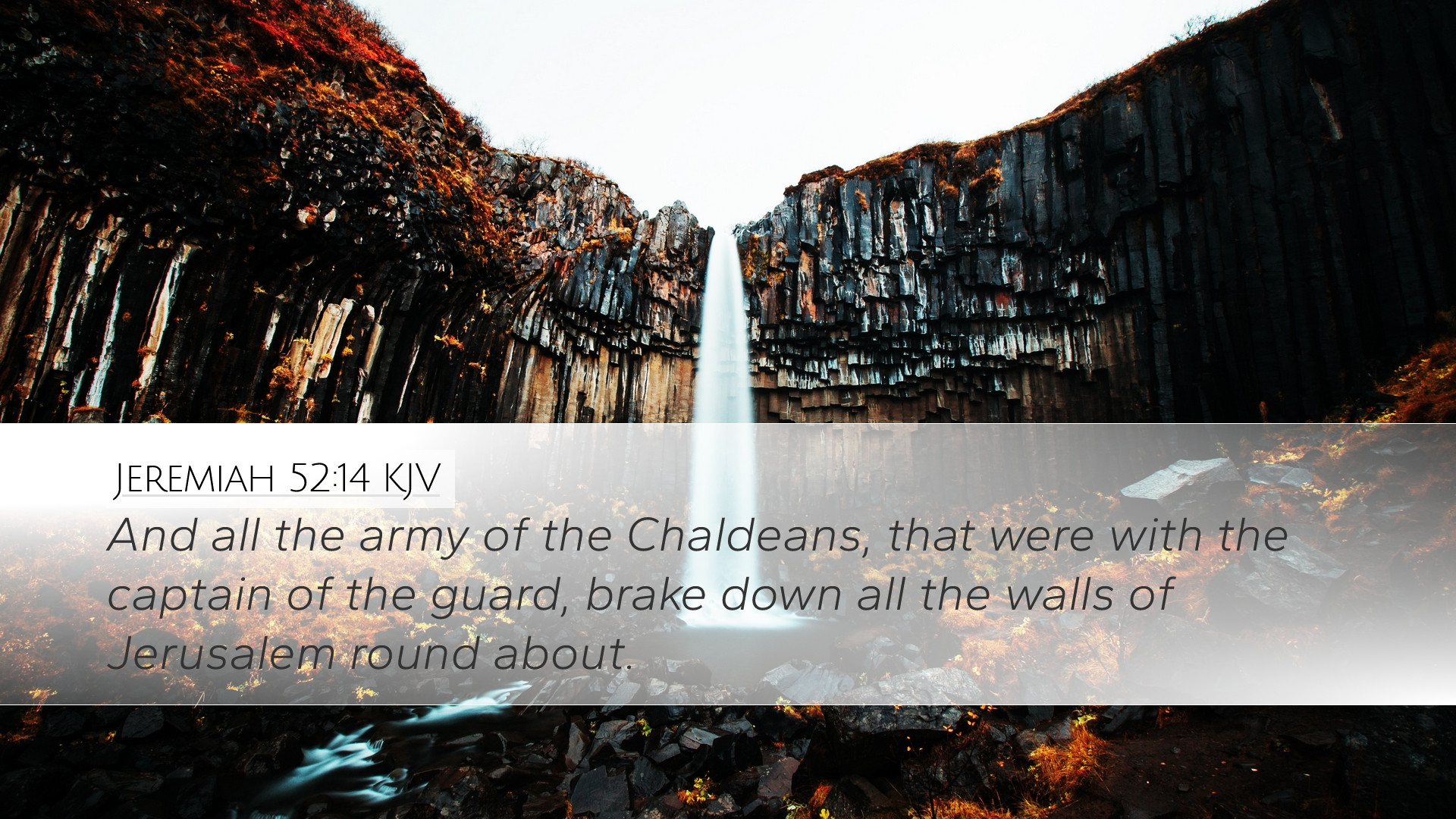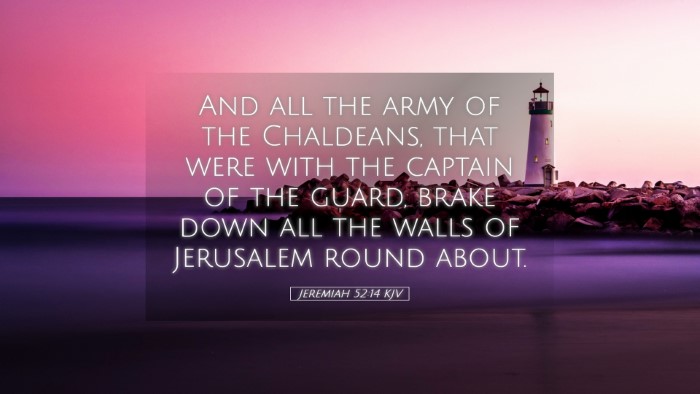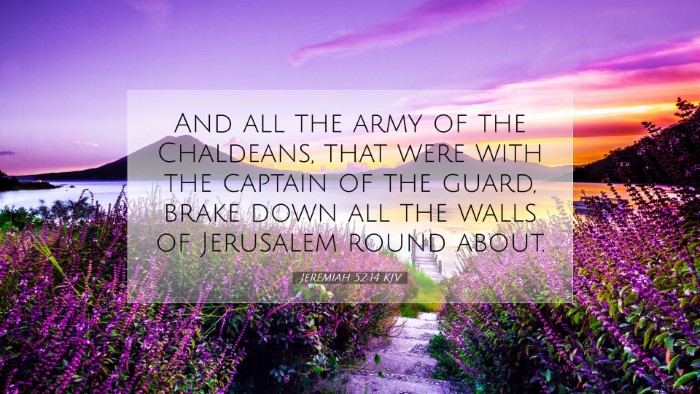Commentary on Jeremiah 52:14
Jeremiah 52:14 states, "And all the army of the Chaldeans that were with the captain of the guard broke down all the walls of Jerusalem round about." This verse describes a grim moment in the history of the people of Israel, detailing the complete and systematic destruction of Jerusalem's defenses by the Chaldean army. This account, which echoes the prophetic warnings given throughout Jeremiah’s ministry, serves as a potent reminder of God's judgment and the consequences of disobedience.
Historical Context
The siege of Jerusalem culminated in the fall of the city in 586 BC, marking a significant and traumatic event for the Jewish people. The destruction of Jerusalem's walls was not just a military victory but symbolized the profound spiritual failure of Israel to uphold their covenant relationship with God. As highlighted in the commentaries, understanding the socio-political and religious landscape of this period is crucial for grasping the depth of this calamity.
Insights from Matthew Henry
Matthew Henry emphasizes the significance of the army's actions in verse 14, interpreting the destruction of the city walls as not merely a physical catastrophe but a divine decree reflecting God’s wrath against unrepentant sin (Henry, Commentary on the Whole Bible). Henry points out that the “breaking down” of the walls also exemplifies the overturning of Israel's stability and security, which was rooted in their relationship with God. The fortifications of Jerusalem, once a symbol of strength, were reduced to rubble, leading to profound theological implications concerning God’s judgment.
Insights from Albert Barnes
Albert Barnes provides a thorough analysis of the military actions in this verse. He notes that the Chaldean army, under Nebuchadnezzar's rule, was not merely conducting a military campaign but fulfilling divine prophecy. Barnes asserts that the complete dismantling of Jerusalem's walls indicates God's abandonment of the city due to Israel's persistent idolatry and unfaithfulness. He argues that this event signifies the end of an era, where Jerusalem, once a city of worship and glory, fell into desolation (Barnes, Notes on the Bible).
Insights from Adam Clarke
Adam Clarke, in his commentary, meticulously details the implications of the siege. He asserts that the destruction of the walls was a culmination of the warnings delivered by the prophets throughout the years. Clarke remarks that the walls represented a tangible expression of God’s protective hand over Jerusalem—a hand that was now withdrawn as a consequence of Israel's disobedience. He suggests that the walls falling serve as a spiritual metaphor for the loss of God’s protection over a nation that has turned its back on Him (Clarke, Commentary and Critical Notes).
Theological Reflections
The destruction of Jerusalem's walls invites several theological reflections that are significant for modern readers:
- The Judgment of God: The event serves as a stark reminder of God’s sovereign authority and His capacity to enact judgment upon nations that persist in sin. Understanding this helps modern believers to reflect on the holiness and justice of God.
- The Consequences of Disobedience: The narrative warns of the serious repercussions of abandoning God’s commandments. The historical context underscores the importance of maintaining a covenant relationship with God, as unfaithfulness can lead to destruction.
- Hope Amidst Judgment: Even in the midst of devastation, the prophetic writings, including that of Jeremiah, also carry a theme of hope and restoration. This dual narrative of judgment and grace offers encouragement to those who repent and return to God.
Application for Pastors and Leaders
For pastors and church leaders, Jeremiah 52:14 emphasizes the importance of vigilance in teaching the truth of God's Word. Leaders are reminded of their responsibility to warn their congregations of the dangers of complacency and worldly distractions. It also calls for an emphasis on repentance and restoration in the life of the church, encouraging leaders to foster environments where accountability and spiritual growth in line with biblical teachings are prioritized.
Conclusion
Jeremiah 52:14 recounts a pivotal moment in biblical history, rich with theological significance and historical context. The combined insights from Matthew Henry, Albert Barnes, and Adam Clarke invite deeper reflection on the nature of God’s judgment, the consequences of disobedience, and the hope for restoration. These lessons remain crucial for contemporary believers and scholars alike, as they navigate the complexities of faithfulness in a world often at odds with the teachings of Scripture.


